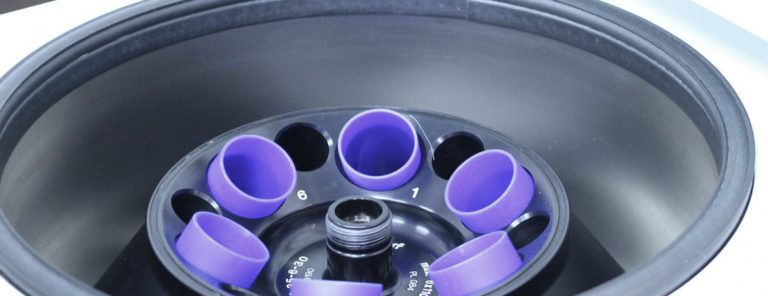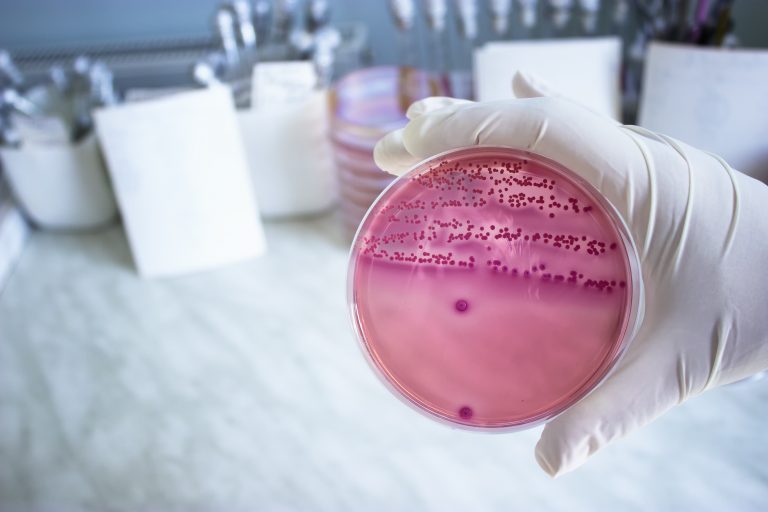Quality and Safety Protocols
Safety of fecal based bacteriotherapies are primarily based on the health of the stool donors. We employ vigorous donor screening metrics, adverse event tracking, and a 60-day quarantine period to ensure that all of our HMTs are as free of pathogenic organisms as possible.
Our donor screening criteria is based off of the US and European based Stool Banks screening protocol, with additional criteria added for pathogenic organisms, generalized inflammation due to unknown causes, and digestive health. First, a donor must pass a 150-point questionnaire. Next, a donor must pass a comprehensive health check-up, comprising more than 50 items. This donor screening process is the most rigorous of any stool bank globally.
The Asia Microbiota Bank works with a major Hong Kong-based HOKLAS certified pathology laboratory for donor screening. Additionally, our metagenomic sequencing is handled by two global companies, which also provide metagenomic sequencing for the US FDA and major universities.
To receive more detailed information on our screening protocol, please email or call us at the contact information listed below.
Microbiota Implant Delivery
Patient Requirements
We require all Registered Network physicians delivering HMT to inform patients of both procedural and microbiota transference-related risks. Physicians must obtain informed consent from their patients. This informed consent includes informing patients that HMT is still considered an experimental therapy, and to discuss alternative treatment options such as other medication, surgery, and no treatment at all.
Patient preparation standard practice includes discontinuation of antibiotics up to 48 hours before HMT. This will ensure that antibiotics do not impact the newly transferred microbiota. While not required, some gastroenterologists have used a large bowel lavage prior to HMT to “clean the slate” and prepare the bowel to receive the HMT.

Implantation
The HMT microbiota preparations will come in either frozen oral capsule form or in frozen liquid solution form.
For HMT capsule delivery, the capsules are taken immediately from removal in frozen storage, and consumed within 15 minutes on site.
For HMT colonoscopy delivery, the HMT will be delivered frozen and should be thawed 3 hours prior to the procedure. The HMT preparation can be pre-loaded directly from the solution container using standard syringes. Alternatively, microbiota preparations can be transferred to a sterile container, such as a clean K-basin, prior to loading syringes.
The HMT preparation may be implanted via standard equipment colonoscopy or retention enema. Sigmoidoscopy has also been successfully used for patients who are unable to tolerate a full colonoscopy. Anecdotal recommendations suggest infusion of all material in the cecum or most proximal aspect safely reached.
Retention enema may work especially well for patients with co-morbidities that may not tolerate other methodologies. The HMT microbiota preparation may be transferred to a standard retention enema bag and should be administered during a 15-30 minute period and retained for 1 hour. Enema delivery may require multiple treatments, particularly in populations with poor rectal sphincter tone such as the elderly. It may help to rotate the patient from LLD, to supine, to RLD.

Regulatory information
Currently, there are no restrictive regulations on HMT within Hong Kong.
Worldwide, regulation of FMT varies greatly between countries. The Therapeutic Goods Administration in Australia, where FMT is not considered a drug or regulated for any indication, has provided no communications regarding FMT. Although several trials of FMT are ongoing in China, there has been no indication that the Ministry of Health intends to exercise authority over the procedure. In Europe, the European Medicines Agency has not regulated FMT for CDI thus far.[111] However, Health Canada considers FMT and related synthetic stool therapies as a “New Biologic Drug” and requires that any clinical study go through the process of a clinical trial application to ensure that quality and safety standards are met.[112] The US Food and Drug Administration (FDA) has determined that administered stool constitutes a biological product and a drug in that it is intended for use in the diagnosis, cure, mitigation, treatment, or prevention of disease or is intended to affect the structure or function of the body.[113] Although fundamentally different from existing drugs and biologics, the agency has maintained that, at this point, the process of donor eligibility determination and screening, stool processing, and infusion defines the FMT “product” and falls under FDA jurisdiction. As such, without large randomized controlled studies to support safety and efficacy, it is an unapproved product and an investigational new drug application (IND) is required to administer FMT.

Find out more information about shipping, payment and regulations on our order page.